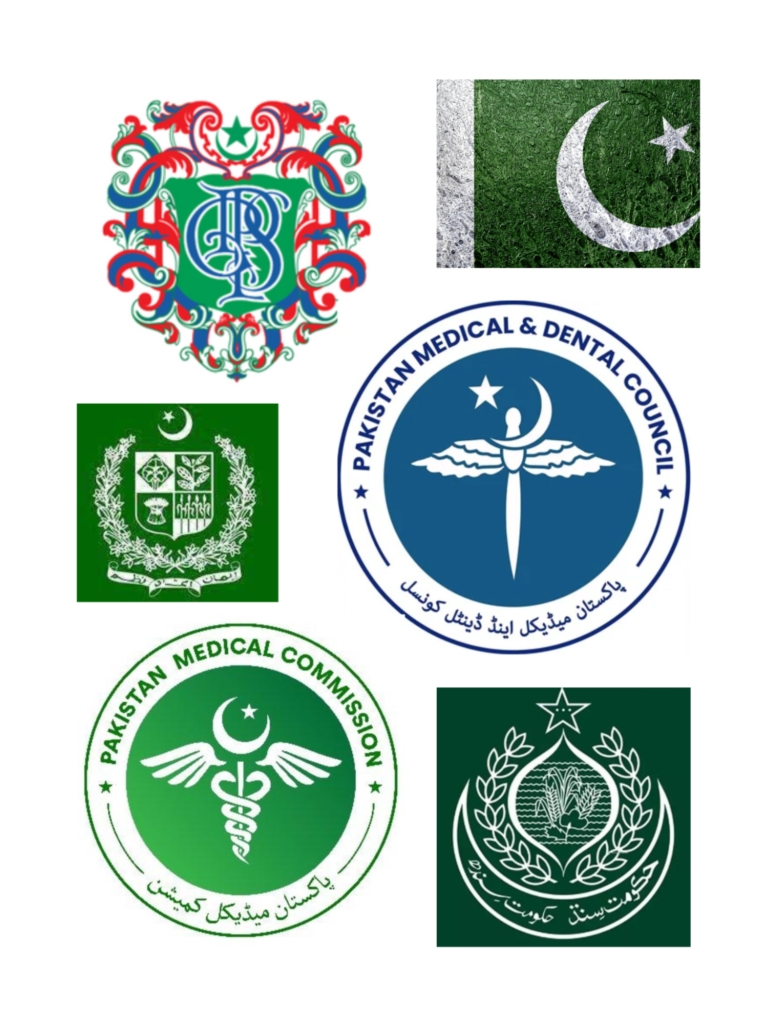By Human-Healthcare.com Editorial Team
Navigating healthcare in Pakistan can be daunting, particularly when it comes to finding the right primary care doctor. A city bustling with healthcare options, knowing where to find competent and well-trained healthcare professionals in Karachi is essential for effective medical care.
Unlike in the US and Canada, where postgraduate training is mandatory for doctors to practice as consultants, in Pakistan, many healthcare professionals begin practicing after completing their MBBS. This distinction is crucial for patients seeking medical advice about complex health issues or patients with multiple health issues.

The Importance of Postgraduate Training
We asked a number of doctors and ran some numbers from (College of Physicians & Surgeons Pakistan) CPSP, PMC and PMDC data.
We believe (and we may be wrong) that only about 20-25% of doctors in Pakistan have completed postgraduate training such as Fellowship of the College of Physicians and Surgeons (FCPS), or other similar training which is necessary for specialized medical consultancy.
In the entire developed countries where human life is considered extremely valuable, one can not practice medicine unless they have spent at least a few postgraduate years of training after completing medical school and internship.
In Pakistan, most doctors are MBBS graduates who, while fully licensed to practice medicine in Pakistan, may not have specialized training that is often critical for addressing complex health issues. This discrepancy in training levels can significantly affect the quality of care provided.
Human-Healthcare.com believes that similar to the US, UK and Canada where a nurse practitioner, physician assistant and an MBBS (termed MD in the US and Canada) doctor can certainly provide basic medical care to patients.
However, on a condition. If there are any complex care demands, red flags noted after starting management, or a patient has complex medical history or comorbidities, referral should be made to the relevant expert.
High Standards of Medical Care
Institutions like Aga Khan Hospital, Shaukat Khanum Hospital and a few other similar hospitals and practices are lauded for their high standards. These facilities mandate postgraduate qualifications for their consulting staff, ensuring that patients receive care from doctors who have completed post-graduate experience and are specialized.
We did find a number of medical officers practicing in even prestigious hospitals in Pakistan. These MBBS doctors did not complete post-graduate training after MBBS, are called RMOs or MOs, and are practicing either under supervision or in a protocol based collaborative environment, so that they have access to consultants as needed.
This adherence to some self-established standards is the model that patients should seek when choosing a doctor for themselves or their parents or any loved one for that matter.
Navigating Healthcare Options
For basic health concerns, such as sore throat, fever, malaria or typhoid, annual health checks, basic blood pressure management, basic thyroid or diabetes management, competent MBBS doctors can provide adequate care in Pakistan. Similar to how PA and NPs deliver independent basic primary care services to communities all over the world, including American, Canada, Australia and Britain.
However, it is vital that these doctors are willing to refer patients to specialist consultants when advanced care is needed. Whether it’s a persistent ailment that doesn’t respond to standard treatment or a condition requiring specialized expertise, knowing when to seek more informed medical advice is key.
We met many people who were disappointed with healthcare services and standards in Pakistan. When we dug deep, we found the issues and matters discussed in this article as one of the main reason behind the mistrust.
Some other reasons being corruption (industry driven recommendations, secretive commission based referrals, etc.), rushed appointments due to fee for service model, lack of protocols and SOP implementations, and lack of accountability in practices, hospitals and the entire health system in Pakistan.
Patients should consider the following when selecting a doctor for yourself, your parents or any loved one:
- Training and Credentials: Verify if the doctor has any specialized training beyond the basic MBBS. If you need basic care as detailed above, an experienced MBBS doctor from a decent medical school should be completely fine.
- Referral Willingness: Choose doctors who acknowledge their limits and are quick to refer patients to specialists when necessary. Ideally, they should have access to specialists if you need them. If you do not feel confident after the encounter, and your health condition is not straightforward, better to get evaluated in a more reliable setting.
- Patient Reviews: Look for feedback from other patients to gauge the doctor’s efficacy and approachability.
- Affiliations: Doctors associated with well-regarded hospitals or trained from reputable countries, hospitals or places are more likely to follow updated medical protocols and have access to the best resources.
Conclusion
In Pakistan in general and Karachi in particular, where the medical landscape is as diverse as its populous, ensuring that your healthcare provider is not only qualified but also has the right connections and ethical standards to refer when beyond their expertise is crucial.
By focusing on doctors who meet these criteria, you can ensure your parents and loved ones receive the highest standard of care available. Choose wisely, as the right doctor can make a significant difference in managing your health effectively.
At Human-Healthcare.com, we are re-inventing healthcare in Pakistan. Currently, only serving in Karachi, we plan to launch our services in other major cities in Pakistan. If your parents are in Karachi and you would like to enroll them in Pakistan’s first value based model, a subscription based concierge service, visit www.Human-Healthcare.com.
